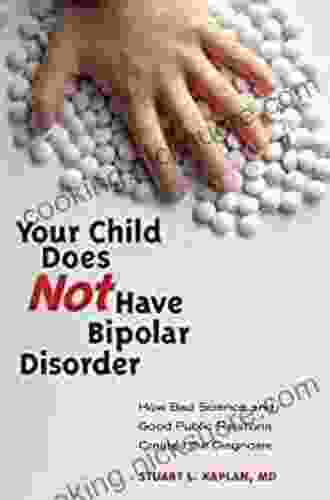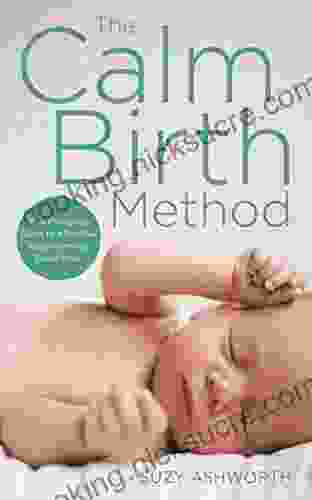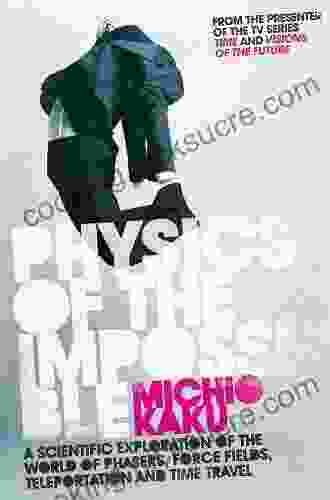How Bad Science and Good Public Relations Created the Diagnosis "Childhood"

The concept of childhood is a relatively recent invention. For most of human history, children were simply seen as small adults. They were expected to work, marry, and have children at a young age. Only in the 19th century did the idea of childhood as a distinct stage of life begin to emerge.
4.2 out of 5
| Language | : | English |
| File size | : | 589 KB |
| Text-to-Speech | : | Enabled |
| Screen Reader | : | Supported |
| Enhanced typesetting | : | Enabled |
| Word Wise | : | Enabled |
| Print length | : | 202 pages |
There were a number of factors that contributed to this change in thinking. One was the rise of Romanticism, which emphasized the importance of innocence and imagination. Another was the Industrial Revolution, which led to a decline in child labor and an increase in the amount of time children spent in school.
As the idea of childhood became more widespread, so too did the diagnosis of "childhood." In the late 19th and early 20th centuries, a number of doctors and psychologists began to argue that children were fundamentally different from adults, and that they required special care and treatment.
These ideas were eagerly embraced by a number of social reformers, who saw the diagnosis of childhood as a way to justify a range of policies and practices designed to protect children from the dangers of the adult world.
One of the most influential of these reformers was G. Stanley Hall, a psychologist who founded the first child study laboratory in the United States. Hall argued that children were recapitulated recapitulated the history of the human race, passing through a series of stages that mirrored the evolution of the species.
Hall's ideas were widely disseminated through his books and lectures, and they had a profound impact on the way that children were viewed and treated in the early 20th century.
The diagnosis of childhood has been used to justify a wide range of policies and practices, from compulsory schooling to the juvenile justice system. It has also been used to create a market for a variety of products and services aimed at children.
Today, the concept of childhood is so ingrained in our culture that it is difficult to imagine a time when it did not exist. However, as we have seen, the diagnosis of childhood is a relatively recent invention, and it is one that has been shaped by a variety of social, cultural, and economic factors.
The Problem with the Diagnosis of Childhood
The diagnosis of childhood has a number of problems. First, it is based on a false dichotomy between children and adults. In reality, there is a continuum of development between childhood and adulthood, and no one point at which a child becomes an adult.
Second, the diagnosis of childhood can be stigmatizing. It can lead to children being seen as less capable than adults, and it can make it difficult for them to be taken seriously.
Third, the diagnosis of childhood can be used to justify a range of harmful policies and practices. For example, compulsory schooling laws are often justified on the grounds that children need to be protected from the dangers of the adult world. However, these laws can actually have a number of negative consequences for children, such as increased stress and anxiety, and reduced creativity and self-reliance.
Alternatives to the Diagnosis of Childhood
There are a number of alternatives to the diagnosis of childhood. One is to simply recognize that children are people, and that they should be treated with the same respect and dignity as adults.
Another alternative is to focus on the individual needs of children, rather than on their age. This means providing children with the support and resources they need to develop and thrive, without forcing them into a predetermined mold.
Finally, we can challenge the idea that childhood is a time of innocence and vulnerability. Children are capable of great things, and they should be given the opportunity to reach their full potential.
The diagnosis of childhood is a flawed and outdated concept. It is based on a false dichotomy between children and adults, it can be stigmatizing, and it can be used to justify a range of harmful policies and practices.
It is time to move beyond the diagnosis of childhood and to recognize that children are people, with the same rights and responsibilities as adults.
4.2 out of 5
| Language | : | English |
| File size | : | 589 KB |
| Text-to-Speech | : | Enabled |
| Screen Reader | : | Supported |
| Enhanced typesetting | : | Enabled |
| Word Wise | : | Enabled |
| Print length | : | 202 pages |
Do you want to contribute by writing guest posts on this blog?
Please contact us and send us a resume of previous articles that you have written.
 Fiction
Fiction Non Fiction
Non Fiction Romance
Romance Mystery
Mystery Thriller
Thriller SciFi
SciFi Fantasy
Fantasy Horror
Horror Biography
Biography Selfhelp
Selfhelp Business
Business History
History Classics
Classics Poetry
Poetry Childrens
Childrens Young Adult
Young Adult Educational
Educational Cooking
Cooking Travel
Travel Lifestyle
Lifestyle Spirituality
Spirituality Health
Health Fitness
Fitness Technology
Technology Science
Science Arts
Arts Crafts
Crafts DIY
DIY Gardening
Gardening Petcare
Petcare Terence Callery
Terence Callery Leslie Sokol
Leslie Sokol Jason Louv
Jason Louv Katharine B Soper
Katharine B Soper Steven Poses
Steven Poses Luigi Gabriele Conti
Luigi Gabriele Conti Andrea Bemis
Andrea Bemis Rick Heard
Rick Heard Marissa Meyer
Marissa Meyer Jeff Davis
Jeff Davis Serena Valentino
Serena Valentino William Ritter
William Ritter Nancy B Rapoport
Nancy B Rapoport Tony Herman
Tony Herman Oliver Perkins
Oliver Perkins Wildlife Trusts
Wildlife Trusts Robyn Sheldon
Robyn Sheldon Brandon Mull
Brandon Mull Karen Tranberg Hansen
Karen Tranberg Hansen Richard Bolstad
Richard Bolstad Kathryne Kennedy
Kathryne Kennedy Clayton Everline
Clayton Everline Ben Doughty
Ben Doughty Trish Allison
Trish Allison Nic Oatridge
Nic Oatridge Carrie Ryan
Carrie Ryan Shaun Assael
Shaun Assael George Hospodar
George Hospodar Joseph Terry
Joseph Terry Catherine Montgomery
Catherine Montgomery Steven Arms
Steven Arms Richard P Feynman
Richard P Feynman Seth Reichelson
Seth Reichelson Sorin Dumitrascu
Sorin Dumitrascu Patrick Hatt
Patrick Hatt Nancy Mcwilliams
Nancy Mcwilliams Richard Munson
Richard Munson Rob Taylor
Rob Taylor Julie Miller
Julie Miller Marta Obiols Llistar
Marta Obiols Llistar Benedict Carey
Benedict Carey Jessica Mccrory Calarco
Jessica Mccrory Calarco Wendy Heard
Wendy Heard Milo Stewart
Milo Stewart Dorothy Pang
Dorothy Pang Jamie Ivey
Jamie Ivey Course Hero
Course Hero Peter Boardman
Peter Boardman Carmen Micsa
Carmen Micsa Ruby Walker
Ruby Walker Ronald D Davis
Ronald D Davis Michele Leathers
Michele Leathers Steve Caplin
Steve Caplin Andrew Greiner
Andrew Greiner Sandy Stott
Sandy Stott Sue Fierston
Sue Fierston L Michele Issel
L Michele Issel Bill O Neill
Bill O Neill Big Daddy Ozone
Big Daddy Ozone Tod Schimelpfenig
Tod Schimelpfenig Brenda Reed Pilcher
Brenda Reed Pilcher Charlotte Elkins
Charlotte Elkins Kindra Gordon
Kindra Gordon V E Schwab
V E Schwab J David Logan
J David Logan Paulette F C Steeves
Paulette F C Steeves 18th Edition Kindle Edition
18th Edition Kindle Edition Jen Calonita
Jen Calonita Nathaniel Philbrick
Nathaniel Philbrick Arianna Astuni
Arianna Astuni Buster Benson
Buster Benson Ken Blanchard
Ken Blanchard Robin Mamlet
Robin Mamlet Gregory Curtis
Gregory Curtis Craig Custance
Craig Custance Jefferson Hawkins
Jefferson Hawkins Michael Anderle
Michael Anderle John Bantin
John Bantin Wolfgang Hohlbein
Wolfgang Hohlbein Raymond Coppinger
Raymond Coppinger Vin T Sparano
Vin T Sparano Sara Manning Peskin
Sara Manning Peskin Sudhir Shirwadkar
Sudhir Shirwadkar Patrick W Galbraith
Patrick W Galbraith Mason Deaver
Mason Deaver Bob Mayer
Bob Mayer Mira Kirshenbaum
Mira Kirshenbaum John Ramirez
John Ramirez Richard Heinberg
Richard Heinberg Richard N Aufmann
Richard N Aufmann Laurie Seale
Laurie Seale Emily Henry
Emily Henry Aldous Huxley
Aldous Huxley Stuart L Kaplan M D
Stuart L Kaplan M D Jennifer Anne Davis
Jennifer Anne Davis Greg Ruth
Greg Ruth Robin Hobb
Robin Hobb Robin Ha
Robin Ha Arous Brocken
Arous Brocken Giada De Laurentiis
Giada De Laurentiis Rob Summers
Rob Summers Samantha Rodman
Samantha Rodman Cathal Armstrong
Cathal Armstrong Lucia Ashta
Lucia Ashta Ivan Pastine
Ivan Pastine Susanna Kearsley
Susanna Kearsley Minal Hajratwala
Minal Hajratwala Martin Rooney
Martin Rooney Mara Vorhees
Mara Vorhees Jordan Romero
Jordan Romero Mara Rockliff
Mara Rockliff Kylie Lee Baker
Kylie Lee Baker Andrea Flores
Andrea Flores Caren Van Slyke
Caren Van Slyke Elizabeth Clor
Elizabeth Clor Zak Mt Standridge
Zak Mt Standridge Antonio Iturbe
Antonio Iturbe Robert Bacal
Robert Bacal Andy Bull
Andy Bull Bernard A Chavis
Bernard A Chavis John Gilbert
John Gilbert Shane Ryan
Shane Ryan Peter Mcbride
Peter Mcbride Tracy Townsend
Tracy Townsend Bruce D Perry
Bruce D Perry Kjartan Poskitt
Kjartan Poskitt Gillian Tett
Gillian Tett Marcus Felson
Marcus Felson Stephan J Guyenet
Stephan J Guyenet Karen Robson
Karen Robson Bhavesh Mamtani
Bhavesh Mamtani Eric Engle
Eric Engle Jim Apfelbaum
Jim Apfelbaum Geoffrey Wolff
Geoffrey Wolff Lonely Planet
Lonely Planet Matt Fulks
Matt Fulks Michael Hermann
Michael Hermann David Abram
David Abram Tom Lodziak
Tom Lodziak Usa Pickleball Association
Usa Pickleball Association Sameera Khan Rd Pa C
Sameera Khan Rd Pa C Kyle Keegan
Kyle Keegan Simon Garfield
Simon Garfield Jack Purdum
Jack Purdum Jacqueline Edmondson
Jacqueline Edmondson Erica Hoke
Erica Hoke Peter Scazzero
Peter Scazzero Steve Sheinkin
Steve Sheinkin Charles Szypszak
Charles Szypszak Steven Johnson
Steven Johnson Prasad Raju V V N R Pathapati
Prasad Raju V V N R Pathapati Raymond E Feist
Raymond E Feist D Harvey
D Harvey Jon Gillespie Brown
Jon Gillespie Brown Rachel Meltzer Warren
Rachel Meltzer Warren Roberto Pedreira
Roberto Pedreira Mike Davenport
Mike Davenport David W Brown
David W Brown Lynne L Finch
Lynne L Finch Mike Gauthier
Mike Gauthier Jim Shea
Jim Shea Sunny Anderson
Sunny Anderson Rashid Khalidi
Rashid Khalidi Laurie Ann Thompson
Laurie Ann Thompson Noel Janis Norton
Noel Janis Norton Bridget Portmann
Bridget Portmann Ryan Pellett
Ryan Pellett Becky Lomax
Becky Lomax Jaak Panksepp
Jaak Panksepp James E Wisher
James E Wisher Richard Bellman
Richard Bellman Will Thornton
Will Thornton Tom Lecompte
Tom Lecompte Andrew Doughty
Andrew Doughty Joseph Luzzi
Joseph Luzzi Dana Mccullough
Dana Mccullough 24th Edition Kindle Edition
24th Edition Kindle Edition Sandra Glosser
Sandra Glosser Lauren Daniels
Lauren Daniels Stan Tekiela
Stan Tekiela Michael S Malone
Michael S Malone Rolf Potts
Rolf Potts Baz Thompson
Baz Thompson Roland Martin
Roland Martin Eugene Raikhel
Eugene Raikhel Deaver Brown
Deaver Brown Pete Pfitzinger
Pete Pfitzinger Laura Lincoln Maitland
Laura Lincoln Maitland George E P Box
George E P Box Jakub Marian
Jakub Marian Ralph Zuranski
Ralph Zuranski Andrea Cremer
Andrea Cremer David Borgenicht
David Borgenicht James Branch Cabell
James Branch Cabell Robert H Miller
Robert H Miller Stephen Wiggins
Stephen Wiggins Pliny The Elder
Pliny The Elder Frances Evesham
Frances Evesham Ronald W Doerfler
Ronald W Doerfler Ian O Connor
Ian O Connor William Gerin
William Gerin Timothy Johnson
Timothy Johnson Walter Greiner
Walter Greiner Steven J Matthiesen
Steven J Matthiesen James R Morrow Jr
James R Morrow Jr Laird Hamilton
Laird Hamilton Chris Salisbury
Chris Salisbury Rupert Sheldrake
Rupert Sheldrake Joelle Charbonneau
Joelle Charbonneau Kristen Thone
Kristen Thone Peter May
Peter May Joseph Ledoux
Joseph Ledoux Hasok Chang
Hasok Chang Leisy J Abrego
Leisy J Abrego Joe Wells
Joe Wells Robert Jay Lifton
Robert Jay Lifton Nikola Tesla
Nikola Tesla Ronald J Harshbarger
Ronald J Harshbarger Jonathan Cummings
Jonathan Cummings H Spencer Lewis
H Spencer Lewis Lundy Bancroft
Lundy Bancroft Dylan Norton
Dylan Norton Paul Kalas
Paul Kalas Leslie Morgan Steiner
Leslie Morgan Steiner C L Mississippi Morgan
C L Mississippi Morgan Linda Eyre
Linda Eyre William F Sensakovic
William F Sensakovic Morihei Ueshiba
Morihei Ueshiba Galit Shmueli
Galit Shmueli Robert B Yonaitis
Robert B Yonaitis Tillie Walden
Tillie Walden Hugh Raffles
Hugh Raffles Malinda Lo
Malinda Lo Thomas Meyer
Thomas Meyer Bernard Craw
Bernard Craw Sheila Jasanoff
Sheila Jasanoff J E Lendon
J E Lendon Melissa Reynolds
Melissa Reynolds Leslie Vedder
Leslie Vedder Patrick Mouratoglou
Patrick Mouratoglou Chiara Marletto
Chiara Marletto Barbara Merry
Barbara Merry David Alloway
David Alloway Andrew Brown
Andrew Brown Michael T Nygard
Michael T Nygard Andrea Cataldo
Andrea Cataldo Margaret Thorsborne
Margaret Thorsborne Dayton O Hyde
Dayton O Hyde Jennifer L Armentrout
Jennifer L Armentrout Kirby Arnold
Kirby Arnold Whitney Nelson
Whitney Nelson Peter David
Peter David Gary Thomas
Gary Thomas Anne Marie Meyer
Anne Marie Meyer Nick Peters
Nick Peters Kelly Oliver
Kelly Oliver Cliff Wilson
Cliff Wilson Mark Mcconville
Mark Mcconville Andrew St Pierre White
Andrew St Pierre White Laura Domino
Laura Domino Andrea Wachter
Andrea Wachter Suzy Ashworth
Suzy Ashworth Ricky Moore
Ricky Moore Christine Heppermann
Christine Heppermann Loren Pope
Loren Pope Galen Wolf
Galen Wolf Ola Ola
Ola Ola Kelsie Stelting
Kelsie Stelting Joe Cavallaro
Joe Cavallaro Gwendolyn Griffith Lieuallen
Gwendolyn Griffith Lieuallen Dani Jacobs
Dani Jacobs Isabel Sterling
Isabel Sterling Meiso
Meiso Namina Forna
Namina Forna Marta Szabo
Marta Szabo Christos Lynteris
Christos Lynteris Charles H Hapgood
Charles H Hapgood Steve Scott
Steve Scott Jimmy Elliott
Jimmy Elliott Marvin L Bittinger
Marvin L Bittinger Sarah Outen
Sarah Outen C B Lee
C B Lee Janet Wolanin Alexander
Janet Wolanin Alexander Richard Maury
Richard Maury Anne Bogel
Anne Bogel Brian C Muraresku
Brian C Muraresku Jenna Miscavige Hill
Jenna Miscavige Hill Andrea Hudy
Andrea Hudy Ian Tattersall
Ian Tattersall Donald S Murray
Donald S Murray S Fatou
S Fatou Steve Anthony Tallon
Steve Anthony Tallon Robert Sky Allen Ph D
Robert Sky Allen Ph D Jason Zemcik
Jason Zemcik Riley Black
Riley Black Andrew Feinberg
Andrew Feinberg Jay Annelli
Jay Annelli Josh Tabor
Josh Tabor Linda Anne Silvestri
Linda Anne Silvestri Mark Hume
Mark Hume Stephanie Cacioppo
Stephanie Cacioppo Christian Keur
Christian Keur Jed Z Buchwald
Jed Z Buchwald Gaurav Suri
Gaurav Suri Guillermo Ferrara
Guillermo Ferrara Andrej Spec
Andrej Spec Pietro Matracchi
Pietro Matracchi Anne Holler
Anne Holler Candace Clark Trinchieri
Candace Clark Trinchieri Mike Cyra
Mike Cyra Donna Bollinger
Donna Bollinger Claire Maxted
Claire Maxted Paul Stamets
Paul Stamets Arlo Adams
Arlo Adams Gabrielle Coleman
Gabrielle Coleman Brock Eide
Brock Eide George Mahood
George Mahood Victoria Schwab
Victoria Schwab Frans De Waal
Frans De Waal Nancy Mather
Nancy Mather Dr Gabriel Peter Salgo
Dr Gabriel Peter Salgo Harriet Brown
Harriet Brown Tim Ryan
Tim Ryan Florent Buisson
Florent Buisson Hayley Campbell
Hayley Campbell Robert Hamill
Robert Hamill Andrew Duncan
Andrew Duncan Kiersten White
Kiersten White David Scott
David Scott Andrea Gonzales
Andrea Gonzales James Mallory
James Mallory Mandy Baggot
Mandy Baggot Future Publishing
Future Publishing Elizabeth S Meckes
Elizabeth S Meckes Terry Ann Williams Richard
Terry Ann Williams Richard Tamara Ireland Stone
Tamara Ireland Stone Rachel Hawkins
Rachel Hawkins Tom Siegfried
Tom Siegfried Metin Bektas
Metin Bektas Doug Swisher
Doug Swisher Daniel Humm
Daniel Humm Rashers Tierney
Rashers Tierney Stephen Chbosky
Stephen Chbosky James Willstrop
James Willstrop Lena Shev
Lena Shev Hampton Sides
Hampton Sides Garcilaso De La Vega
Garcilaso De La Vega Jason Welker
Jason Welker Leigh Bardugo
Leigh Bardugo Maria Konnikova
Maria Konnikova Jennifer Blair
Jennifer Blair Sid Thatte
Sid Thatte Sarah Castille
Sarah Castille Mary Jane Sterling
Mary Jane Sterling Adam Mansbach
Adam Mansbach Andrea Komlosy
Andrea Komlosy Lars Muhl
Lars Muhl Andrew Beyer
Andrew Beyer Paco Underhill
Paco Underhill Kristine Papin Morris
Kristine Papin Morris Steven H Weintraub
Steven H Weintraub Annette Curtis Klause
Annette Curtis Klause Lilith Starr
Lilith Starr Kelly Tyler Lewis
Kelly Tyler Lewis Gabby Rivera
Gabby Rivera Steve Bisheff
Steve Bisheff Victoria Ortiz
Victoria Ortiz Jenn Brandt
Jenn Brandt Andrew Goliszek
Andrew Goliszek James Dodson
James Dodson Joe Posnanski
Joe Posnanski Christopher Sommer
Christopher Sommer Denise Riebe
Denise Riebe Brian Azzarello
Brian Azzarello George Christian Pappas
George Christian Pappas James Rebanks
James Rebanks April Vahle Hamel
April Vahle Hamel David Montgomery
David Montgomery Joseph Bruchac
Joseph Bruchac Kristin Briney
Kristin Briney Elizabeth S Trafalgar
Elizabeth S Trafalgar James Fox
James Fox Rita Jablonski
Rita Jablonski Greg Presto
Greg Presto Stacey Little
Stacey Little Department Of Defense
Department Of Defense Thomas Berger
Thomas Berger A J Carlisle
A J Carlisle Jeremy Freese
Jeremy Freese Connie J Wells
Connie J Wells Keith Sutton
Keith Sutton Joey Miller Msw Lcsw
Joey Miller Msw Lcsw Jack Hunnicutt
Jack Hunnicutt Melissa Caughey
Melissa Caughey Luke Hohmann
Luke Hohmann Rachel Atwood
Rachel Atwood Kenneth S Shultz
Kenneth S Shultz Ben Orlin
Ben Orlin Bisco Hatori
Bisco Hatori Rajani Katta
Rajani Katta Bobby Orr
Bobby Orr Steven M Fiser
Steven M Fiser James Geary
James Geary C L Werner
C L Werner Elizabeth Marshall Thomas
Elizabeth Marshall Thomas Andrea Olson
Andrea Olson Kailin Gow
Kailin Gow Francesca Zappia
Francesca Zappia Patsy M Lightbown
Patsy M Lightbown Daniel Shiffman
Daniel Shiffman James A Middleton
James A Middleton Andre Watson
Andre Watson W J Hendry
W J Hendry Kathleen Dean Moore
Kathleen Dean Moore Jenny Mackay
Jenny Mackay Lori Shandle Fox
Lori Shandle Fox Michael Judge
Michael Judge Robin Satty
Robin Satty Chris Lilly
Chris Lilly Thomas Watson
Thomas Watson Christina Kim
Christina Kim Kevin Cook
Kevin Cook Roger Atwood
Roger Atwood Necoco
Necoco Matt Richtel
Matt Richtel Mary Keith Piasecki
Mary Keith Piasecki Christine Balaz
Christine Balaz Marcus A Pfeiffer
Marcus A Pfeiffer Pat Wray
Pat Wray Brad Schoenfeld
Brad Schoenfeld Romney Steele
Romney Steele Erich Neumann
Erich Neumann Ed Willes
Ed Willes Anna Holmwood
Anna Holmwood Rich Luhr
Rich Luhr Kerri Andrews
Kerri Andrews Paul Rooyackers
Paul Rooyackers M D Johnson
M D Johnson Rachael Chapman
Rachael Chapman James Lyons Weiler
James Lyons Weiler Jay Greeson
Jay Greeson Luke Rosiak
Luke Rosiak James Turnbull
James Turnbull John Morton
John Morton Chris Mcmullen
Chris Mcmullen Bernard Moitessier
Bernard Moitessier Bettina Bonifatti
Bettina Bonifatti Andrew Blauner
Andrew Blauner Lisa Bond
Lisa Bond Victoria Allman
Victoria Allman Bruce Bowlen
Bruce Bowlen Rick Westhead
Rick Westhead Rizwan Virk
Rizwan Virk Paul Abell
Paul Abell Andrew Gelman
Andrew Gelman Nick Marshall
Nick Marshall Jim Curran
Jim Curran Ewen Levick
Ewen Levick Gemma Rogers
Gemma Rogers Julie Powers
Julie Powers Jonathan Clements
Jonathan Clements Tim Wharnsby
Tim Wharnsby Susan Williams White
Susan Williams White Dot Edu
Dot Edu E K Johnston
E K Johnston Neil Oliver
Neil Oliver Bruce Mcnall
Bruce Mcnall Sean Pidgeon
Sean Pidgeon Catie Czora
Catie Czora Mark M Meerschaert
Mark M Meerschaert Michio Kaku
Michio Kaku Vertamae Smart Grosvenor
Vertamae Smart Grosvenor Daniel P Murphy
Daniel P Murphy Ann Gadzikowski
Ann Gadzikowski Gerald A Moore Sr
Gerald A Moore Sr Bonita Norris
Bonita Norris Andrea Curtis
Andrea Curtis Thomas S Kuhn
Thomas S Kuhn Ken Gullette
Ken Gullette
Light bulbAdvertise smarter! Our strategic ad space ensures maximum exposure. Reserve your spot today!

 Louis HayesTreasure Tales of the Oregon Coast: Uncovering the Legends of Sunken Ships,...
Louis HayesTreasure Tales of the Oregon Coast: Uncovering the Legends of Sunken Ships,...
 Charles BukowskiThe First Ascent of the West Wall of Changabang: A Journey to the Summit of...
Charles BukowskiThe First Ascent of the West Wall of Changabang: A Journey to the Summit of... Pat MitchellFollow ·10.1k
Pat MitchellFollow ·10.1k Dominic SimmonsFollow ·8.9k
Dominic SimmonsFollow ·8.9k Jules VerneFollow ·12k
Jules VerneFollow ·12k Frank MitchellFollow ·11.1k
Frank MitchellFollow ·11.1k Branson CarterFollow ·10.8k
Branson CarterFollow ·10.8k Truman CapoteFollow ·15.1k
Truman CapoteFollow ·15.1k Jerry HayesFollow ·2k
Jerry HayesFollow ·2k Elmer PowellFollow ·5.1k
Elmer PowellFollow ·5.1k

 Demetrius Carter
Demetrius CarterGolf Scrimmages: Realistic Practice Games Under Pressure
Golf scrimmages are...

 Andres Carter
Andres CarterAhsoka Tano: The Force-Wielding Togruta Who Shaped the...
Ahsoka Tano is one of the most...
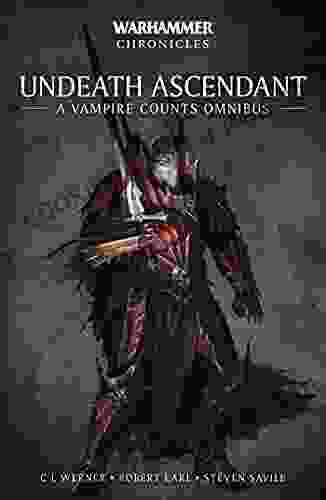
 Greg Foster
Greg FosterUndeath Ascendant: A Blood-Soaked Literary Odyssey into...
Immerse yourself in a macabre tapestry of...
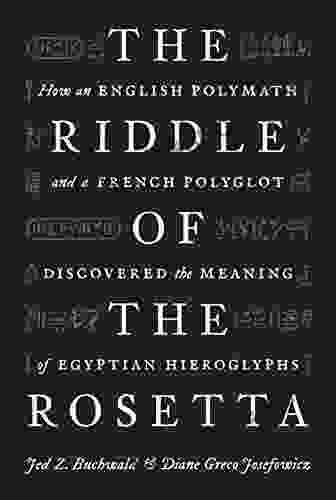
 Paulo Coelho
Paulo CoelhoHow an English Polymath and French Polyglot Discovered...
The Rosetta Stone is...
4.2 out of 5
| Language | : | English |
| File size | : | 589 KB |
| Text-to-Speech | : | Enabled |
| Screen Reader | : | Supported |
| Enhanced typesetting | : | Enabled |
| Word Wise | : | Enabled |
| Print length | : | 202 pages |


